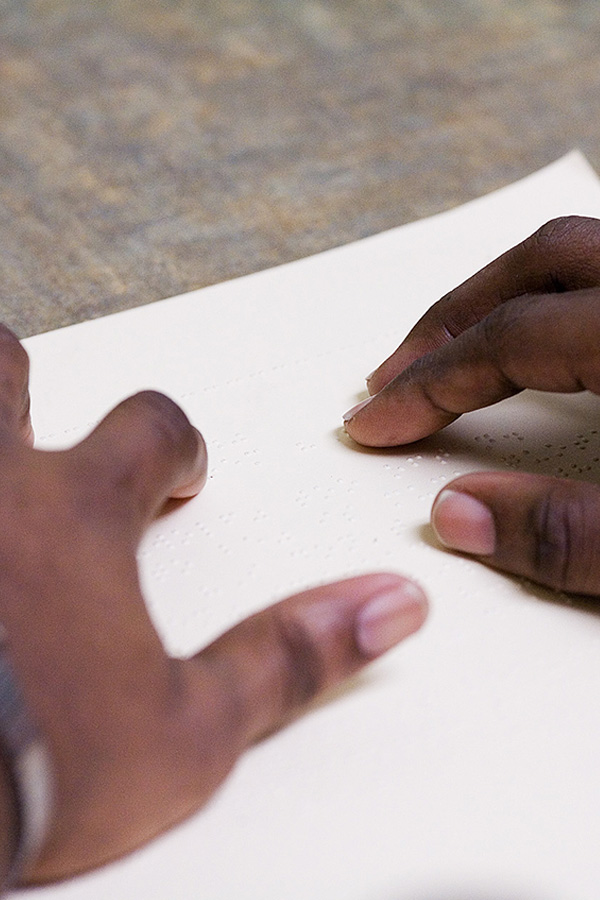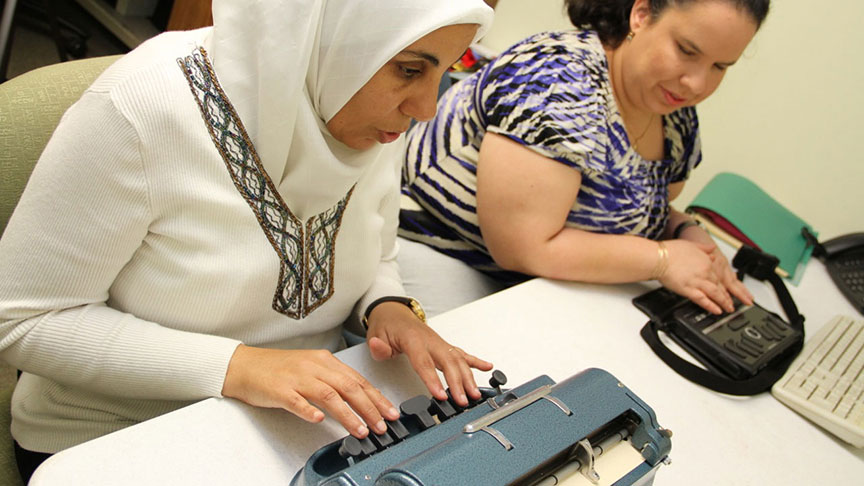- SERVANT LEADERSHIP
-
•INCLUSION
-
•COLLABORATION
-
•EMPOWERMENT
-
•EXCELLENCE
We empower people of all ages and at all stages of vision loss to learn – or relearn – the skills they need to enjoy life. While we can’t restore a client’s vision, our professionally certified vision rehabilitation therapists can show people how to continue to do the things they love – read, write, cook, travel, work, take care of their homes, spend time with friends and family – beyond vision loss.
Our professionally certified vision rehabilitation therapists work one-on-one with each client to identify the services they need to live their best lives, and to develop an individual empowerment plan.
CHILDREN
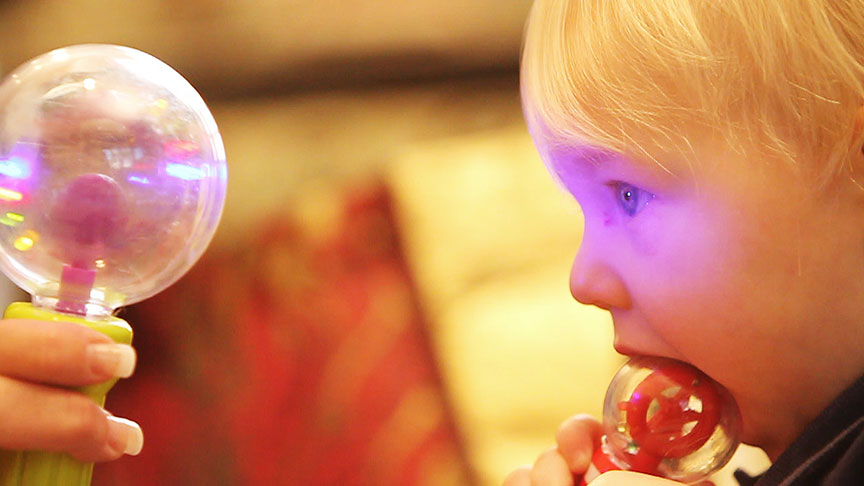
From birth through age five, Early Intervention Services empower children born with low or no vision to learn, grow and reach important developmental milestones at a healthy rate.
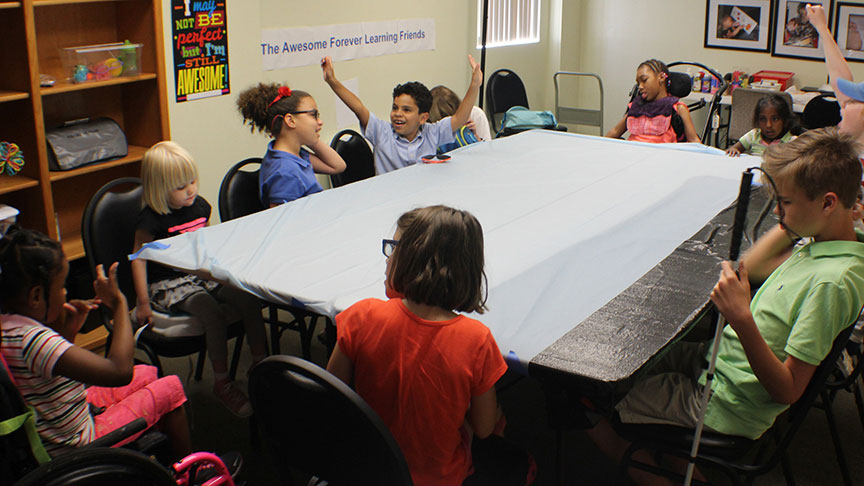
From ages five through thirteen, children in our Children's Program develop key social and academic skills such as making friends, using computers and smartphones, and completing everyday tasks with confidence, including making snacks and finishing homework.
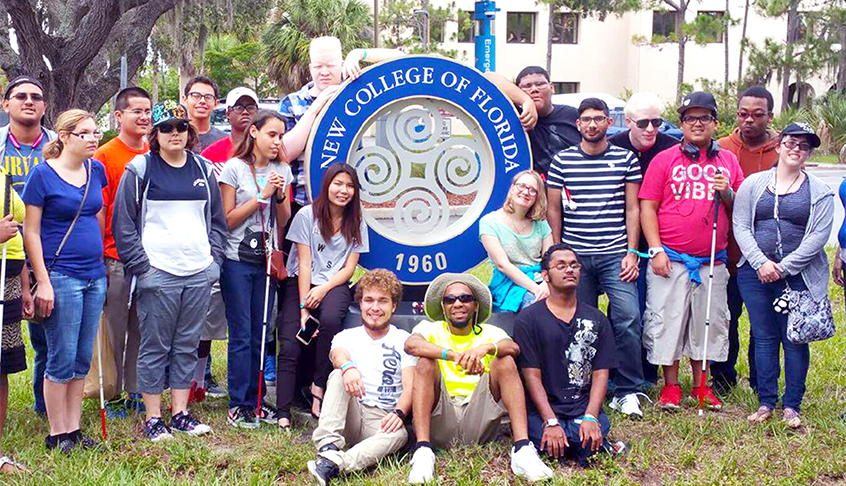
From ages 14 - 22, Transition Services cultivate growing independence for teens and young adults, empowering them to move from high school to post-secondary activities such as college, vocational school and employment.
ADULTS
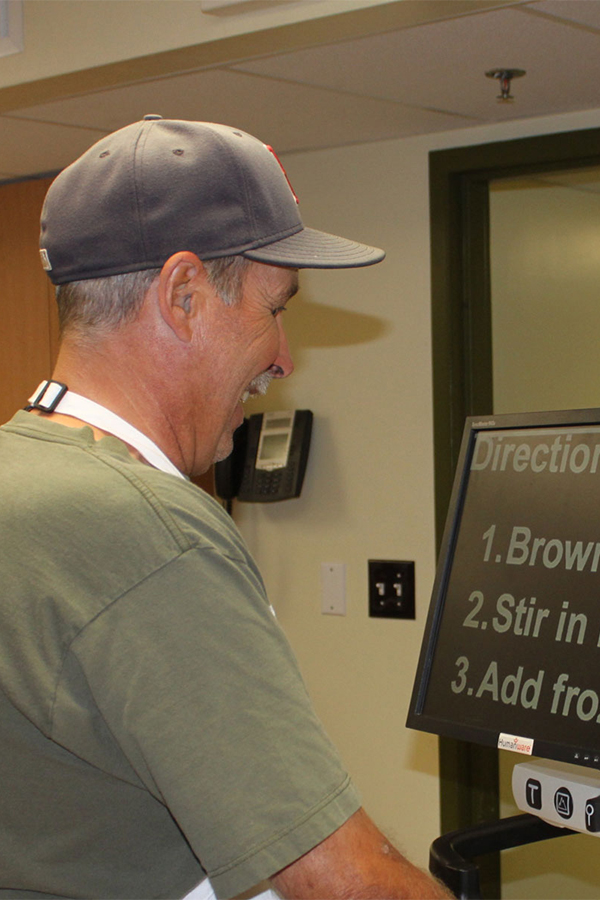

Working with our professional vision rehabilitation therapists, individuals who lose their vision adjust to their new reality successfully by relearning the Independent Living Skills they need to maintain their confidence and safety on a day-to-day basis, including:
- Navigating through their home and public places
- How to cook, clean and maintain their home
- Maintaining their responsibilities at work
- Spending time with friends, family and colleagues
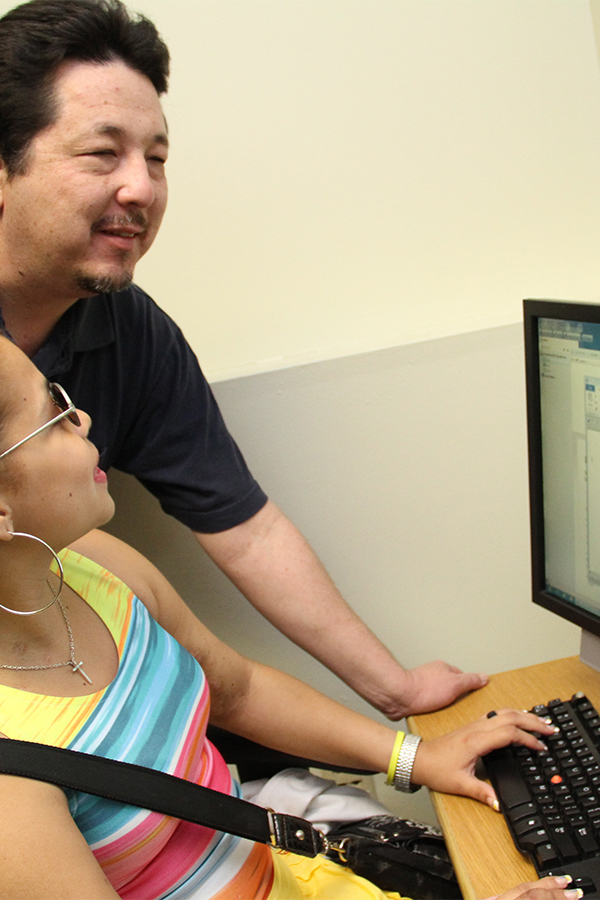
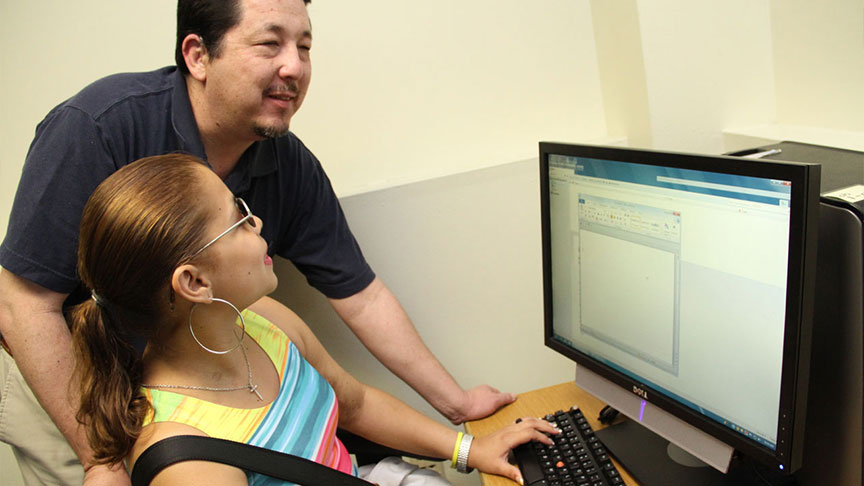
Through our Access Technology programs, individuals learn how to use adaptive technology effectively at home, at work and in all the other aspects of day-to-day life that demand technological fluency, including:
- Using personal computers and smartphones
- Reading mail, banking statements and other private documents
- Reading and writing emails and messages
- Connecting with friends and family online
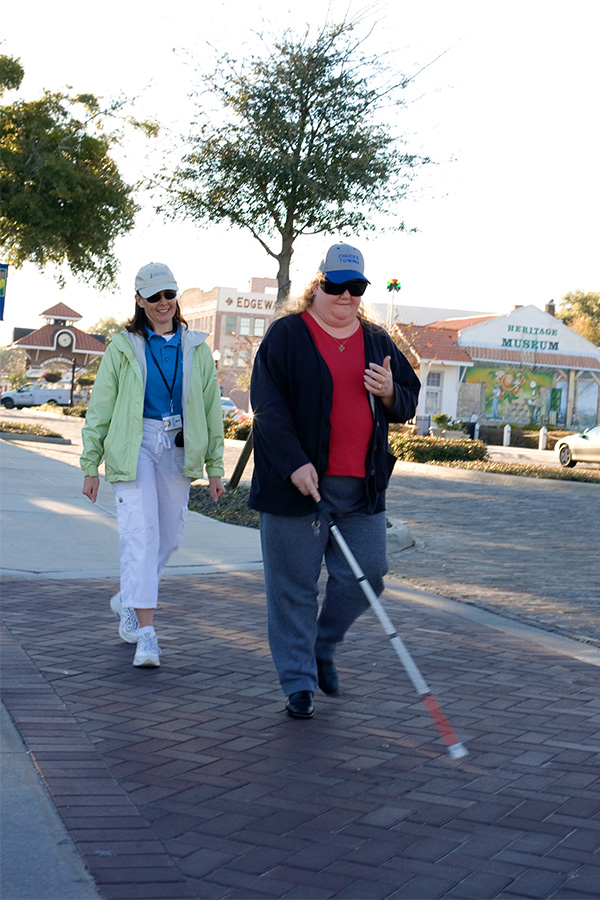
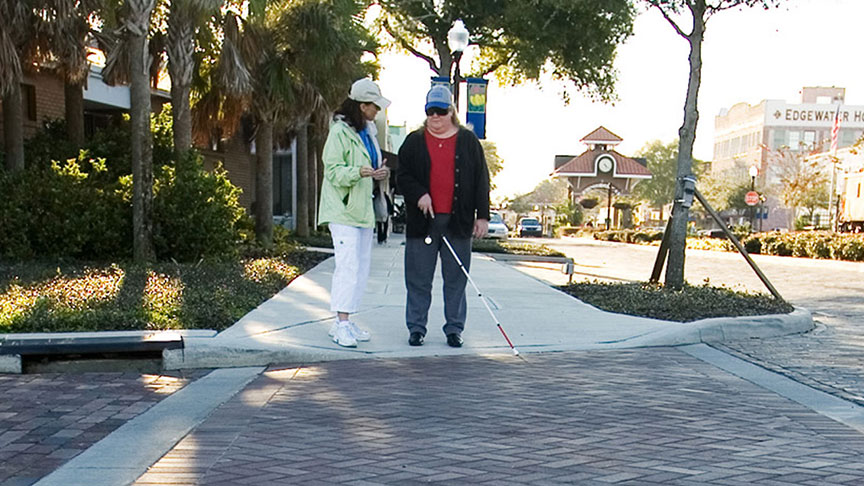
Through Orientation and Mobility training with certified instructors, individuals develop the skills to travel safely, confidently and independently, including how to:
- Map out spaces and plan routes in their heads
- Cross busy intersections and use stairs
- Use a white cane to travel safely and identify themselves to drivers and pedestrians
- Protect themselves from slips and falls
Our programs, services and staff satisfy national medical standards.
For individuals experiencing vision loss, referral to Vision Rehabilitation Services is now the medical standard of care. Lighthouse Central Florida is the only nationally accredited provider of Vision Rehabilitation Services in the region. So you can place your trust in the high quality of our programs–and the professionals who run them.
For individuals experiencing vision loss, referral to Vision Rehabilitation Services is now the medical standard of care. Lighthouse Central Florida is the only nationally accredited provider of Vision Rehabilitation Services in the region. So you can place your trust in the high quality of our programs–and the professionals who run them.


